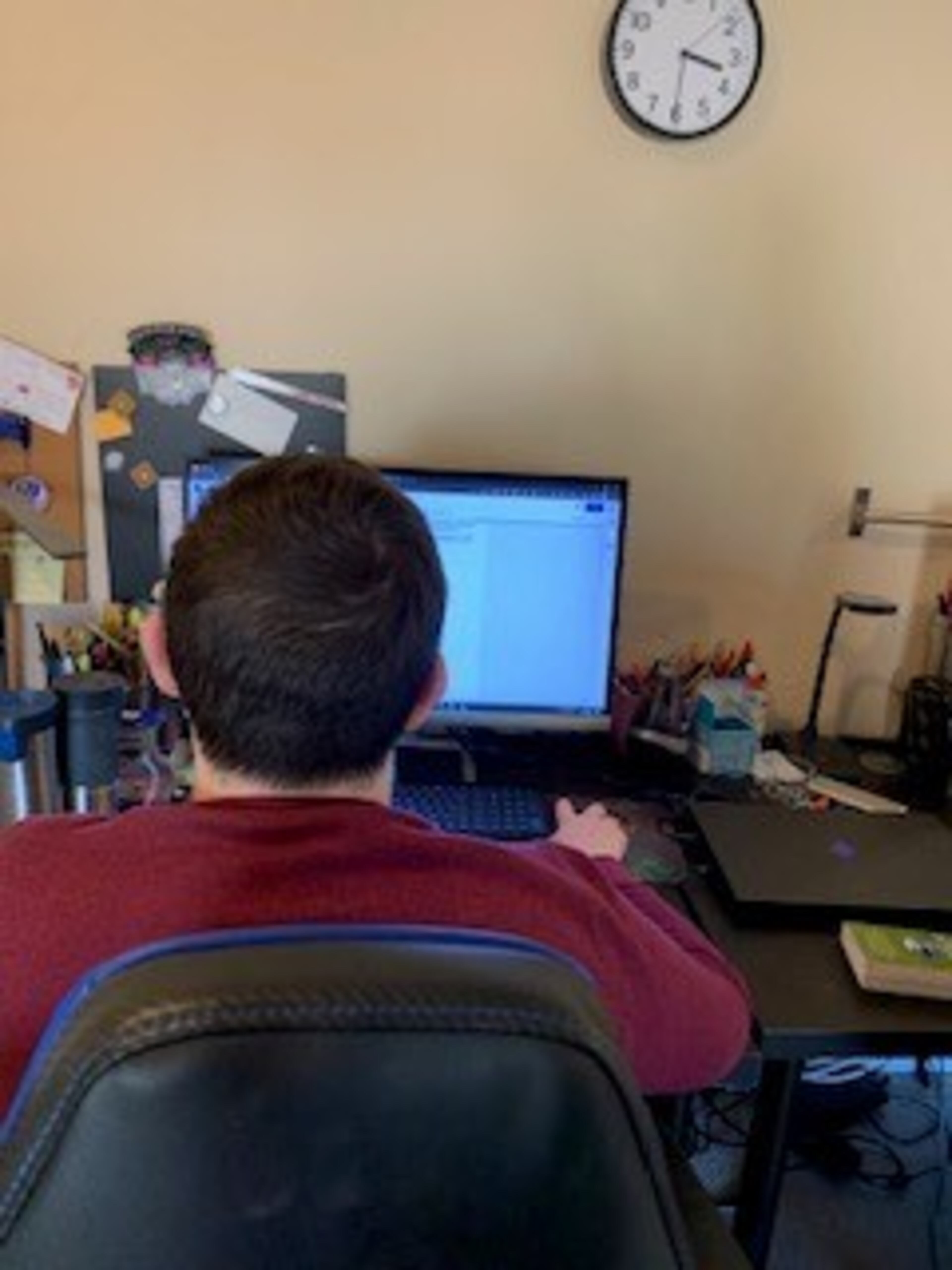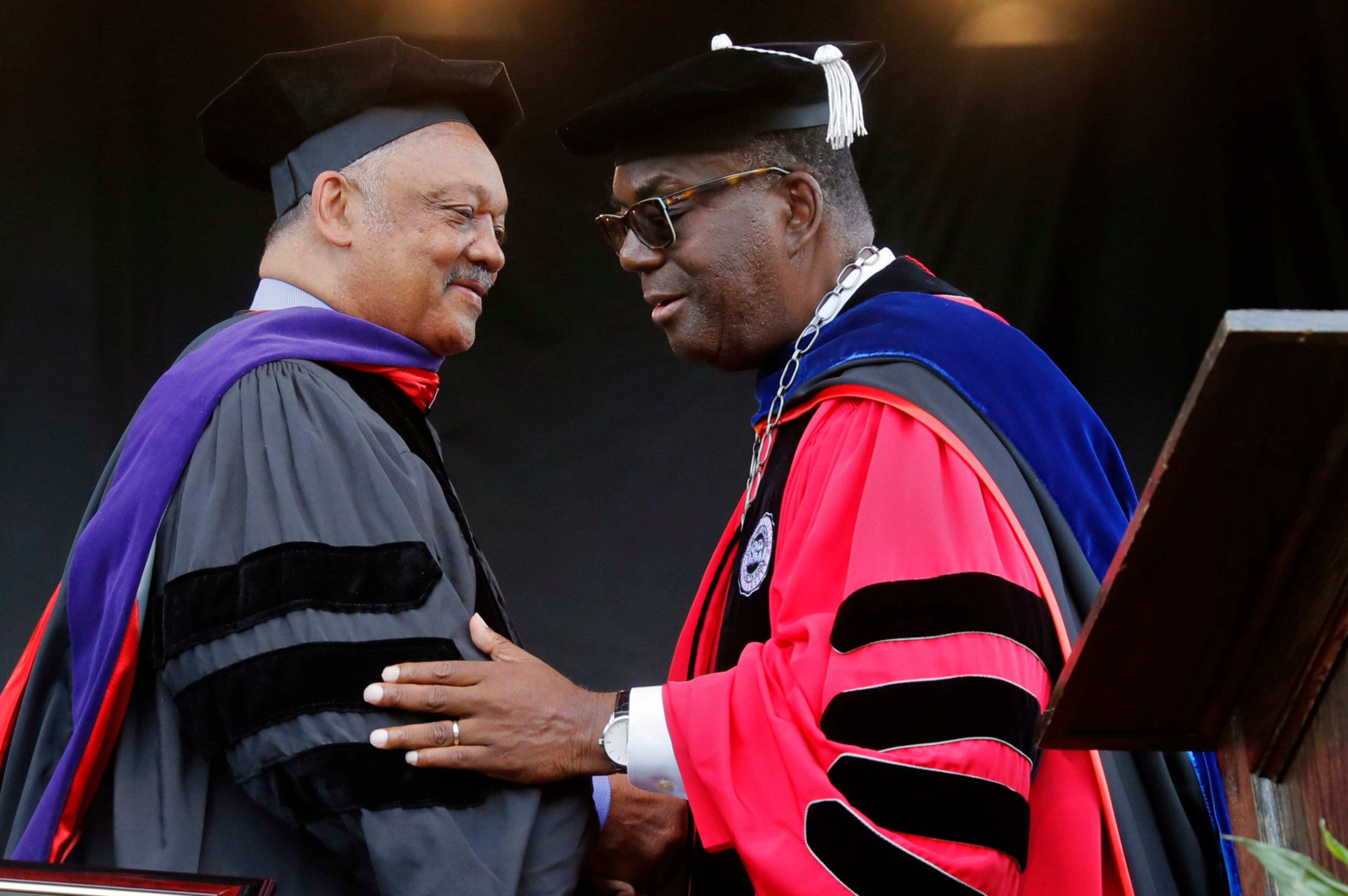Online education often comes nowhere near what’s offered in classroom

Seraphina Guess knew something was wrong, so the seventh grader showed her computer screen to her mom, who, in a fit of rage, shared it on Twitter.
The 12-year-old’s online grammar assignment asked students to identify the linking verb in this sentence: “The Confederate soldier on horseback looked very heroic as he rode his horse over the ridge.”
Pearson, the global education company, apologized on Twitter: “This does not represent our values.” (The company subsequently said it removed the “offensive” content.)
For Seraphina’s mother, Josina Guess, the blithe use of such freighted language crystallized what she’d been thinking about her daughter’s online education this fall: It was an afterthought, “outsourced.”
Seraphina has had little interaction with teachers. School has been mostly quizzes and tests, Josina Guess said. “They have completely different curriculum,” she said. “And they have no connection with their peers.”

After the coronavirus crisis of last spring, Georgia’s 180 school districts had a few months to develop new educational models for those students planning to attend from home. Some, like Gwinnett County and the City of Marietta, merged classrooms and living rooms, using Zoom to knit students together, with teachers teaching both online and in-person students simultaneously.
Others, like Seraphina’s middle school in Madison County, near Athens, created separate online programs.
“They do have a lot less teacher interaction,” said Jody Goodroe, assistant superintendent in Madison County. The online program was what they could afford after the state cut budgets this year, he said, and with 88% of students in person, there are not enough teachers to spare for a dedicated online workforce. Instead, classroom teachers are paid extra to help online.
Many school districts across Georgia have deployed similar programs, turning to companies to provide a platform and curriculum. Some assigned teachers full time online, so they could run “synchronous” live classes, using video platforms such as Zoom. Others offer mainly “asynchronous” courses, with students working alone and teachers checking in on occasion.
“There is zero teaching,” said Liz Hart in Forsyth County. Her son, a sophomore, was excited to learn last spring that he’d been admitted to a career-oriented magnet school there. However, he’s been unable to attend in person because of his kidney disease.
Instead, he’s been studying independently online, and struggling, his mom says, to keep up with assignments. He scours the Internet for information about arcane concepts — the word “concatenate” stumped him recently — that a teacher, if available, could quickly clarify. He often works until 10 p.m., rarely leaving his chair, Hart said.

A Forsyth spokeswoman said that is not the norm and promised to look into the situation. The district can offer special help for the medically homebound, she said.
Others have had a more interactive experience.
Charlotte Kitchens, an 8-year-old online student in Houston County, south of Macon, has bonded with her teacher and some of her classmates. When the deadline came to decide whether to switch back to in-person classes next year, she declined; it would have meant a different teacher.
“Through a computer screen, she has managed to love on and nurture my daughter,” said Charlotte’s mother, Bria Kitchens.

Charlotte disliked writing until this semester, when her teacher nurtured the girl’s passion for “Hamilton,” the musical, and inspired her to write a paper about the main character, Alexander Hamilton, one of the Founding Fathers.
Charlotte has live video sessions with her teachers and other students. It’s not perfect: Bria Kitchens thinks the classes are too large, so the schooling isn’t tailored to each child and Charlotte gets bored.
Yet Charlotte looks forward to her Wednesday breakout sessions with a handful of girls. They named their group the “She-Wolf Pack,” based on a TV show. When Kitchens is doing the laundry, she hears them howl, and thinks it’s adorable.
People who study online education say students learn better when they engage with others, whether in a real classroom or online.
“The highest quality learning requires students to interact with their teacher and other students,” said Jennifer Darling-Aduana, an assistant professor in the College of Education & Human Development at Georgia State University and co-author of a new book, “Equity and Quality in Digital Learning.”
School districts had to establish online options this year even as the state slashed about $1 billion from education. Emergency federal funding helped fill the gaps, paying for safety measures in schools, but there wasn’t much left over for online programs.
In Bulloch County, near Savannah, the school administration advised the school board not to create an online program for the elementary schools.
“Everybody knows that for the elementary level, online is not the best option,” said Hayley Greene, the Bulloch schools spokeswoman.
Parents wanted one, though. With three weeks left to prepare for the fall semester, the administration settled on private provider SchoolsPLP of Phoenix.
Surveys by the school district this fall indicated teachers thought things were steadily improving online, but half were dissatisfied with the quality of the SchoolsPLP content. A third also complained about their workload.
Bulloch elementary school teachers monitor students’ work and meet with students a few times per week in brief live online sessions. It’s not enough interaction for Suzanne Hallman, a mother of two boys there, one in kindergarten and the other in third grade. Mostly, they are doing assignments on the platform.
“They log into PLP and they watch videos and they get checked off,“ Hallman said.
Masks are encouraged — not mandated — in Bulloch, which concerns Hallman. Nevertheless, she and her husband are giving up.
“For their happiness and sanity, we’re going to go back to school in January,” she said.
More than 1,600 other students in Bulloch County have also asked to return in-person next semester, compared with about 100 who requested to switch online; and at least 40% of the online students in Madison County will be returning to classrooms.
Others can’t make that compromise.
Paula Martinez, a mother in Cherokee County, has health issues that would make infection with the coronavirus a serious threat. Her daughter, Isabella Ballesteros, started the year attending Freedom Middle School in person, but the 13-year-old was spooked by the inconsistent wearing of masks. “Her fear is I’m a single mom, she’s going to bring something home and I’m going to get sick and she’s going to be orphaned.”

Isabella gets straight A’s, is a little shy, and likes working at her own pace. She seems happy, Martinez said. But her mom worries that, with little interaction with teachers, she is falling behind, and she feels she won’t really know if that’s the case until Isabella returns to school for her freshman year — in the fall of 2021.



